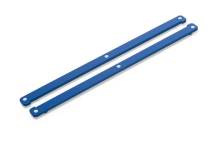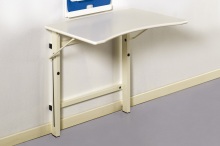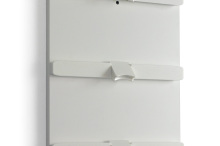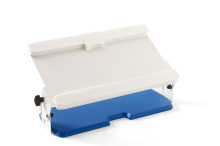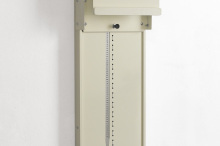Positioning on a table: when put up on a horizontal surface in front of the patient, the active work required in using the ladder with the fingers will involve the proximal joints, extending the elbow and flexing the shoulder. In doing this progressive task using their fingers, the patient develops fluidity and coordination, alternating a flexing movement with one finger with the simultaneous extension of the other to reach the next step.
Positioning on a vertical panel: the ladder is positioned on the same axis as the support module, due to bulk considerations, and is rotated and used vertically. This is particularly useful when you wish to get the shoulder to a greater degree of flexing.
Positioning on a surface at a variable tilt: the exercise proposed can be useful for teaching the patient to align their trunk correctly, in order to achieve the change in position from seated to standing upright. Patient seated a little away from the table.
The aid is positioned so that it reaches the furthest reach of the fingers, with the elbow extended. Their centre of gravity is sufficiently in front of them to allow them to lift themselves up.
